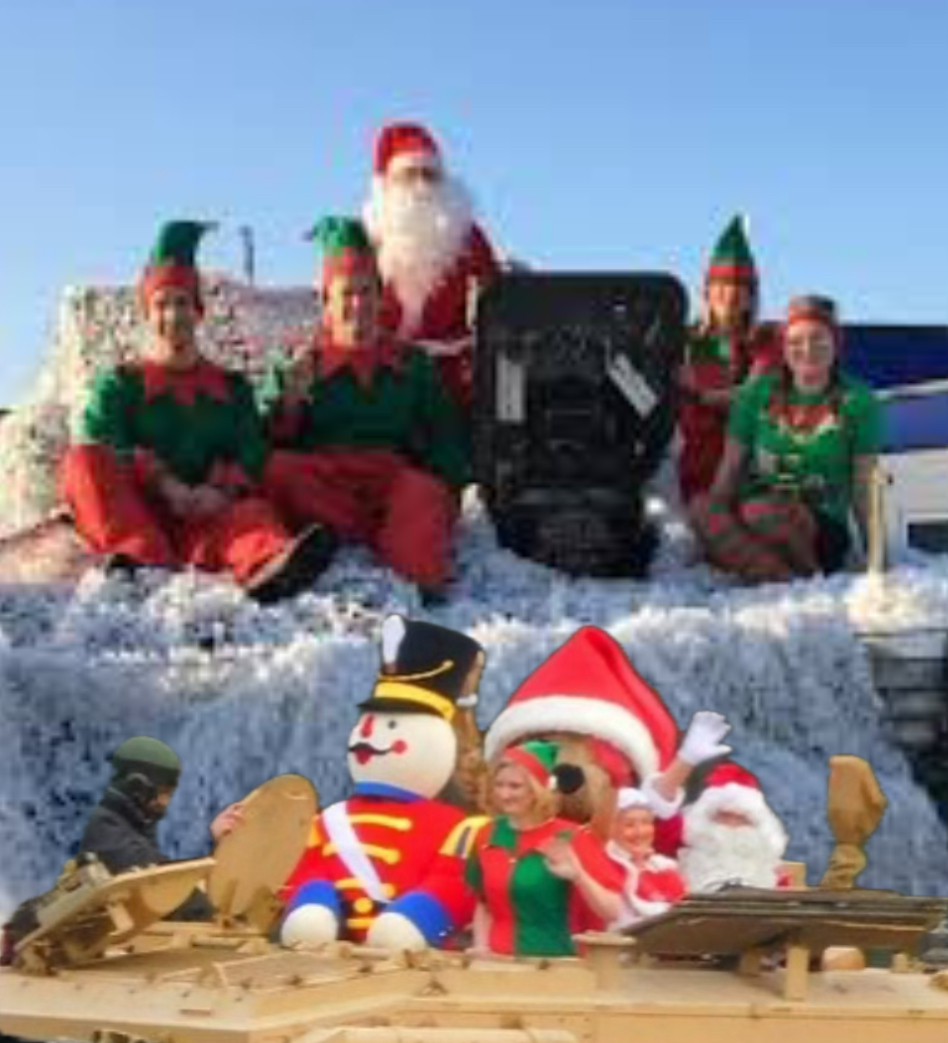In a surreal twist on festive cheer, Bovington Tank Museum’s decision to have Santa Claus arrive in a tank this year seems like a satirical nod to the commercialization, and even militarization, of Christmas. By swapping his iconic sleigh for a hulking armoured vehicle, the museum transforms Father Christmas from a gentle symbol of goodwill into something that feels more like a spectacle of military prowess. It’s as if we’re witnessing Santa Claus conscripted, reimagined as a figure in full battle-ready regalia, emerging through the museum grounds to a barrage of camera flashes and children’s cheers, blurring the lines between innocence and the machinery of war.
The symbolism here is troubling. Santa, traditionally a figure of kindness and generosity, is now juxtaposed with the image of a tank; an instrument of destruction and power. This incongruity introduces children to conflicting images: Santa as the bearer of gifts, yet in a setting that celebrates heavy armament. The museum may argue that it’s simply a novel attraction, aiming to spark curiosity about history. Yet, it risks endorsing a notion that the appeal of a tank lies in its spectacle, even its glory. Children, those for whom Santa holds a certain magic, may be left with a vision of Christmas intertwined with militarism, normalising the awe of weaponry within a festive context.
At its core, this event could be interpreted as a manifestation of how modern consumer culture, often fuelled by spectacle, has drifted far from any sense of deeper meaning or sensitivity. Santa has become a tool for attracting crowds, the tank a vehicle (literally and figuratively) for holiday commerce. Perhaps the real message here is one about the lengths organisations will go to capture attention, even at the risk of distorting or undermining traditional symbols and values.
But what impact does this have on children, who are particularly susceptible to the power of imagery? Rather than reinforcing ideas of peace, empathy, and warmth that the holiday season traditionally brings, the sight of Santa aboard a tank may subtly recalibrate their associations with Christmas. Instead of a magical figure of generosity, he becomes a mascot of spectacle in an arena dedicated to war, subtly encouraging a fascination with power. Whether Bovington Tank Museum intended it or not, the image of a tank-borne Santa ultimately seems to embody the notion that, in modern times, no symbol is too sacred to be refashioned for the sake of attracting attention, even if the result is unsettlingly ironic.
When the children pull the wrapping paper off, be careful not to pull the pins out too. Otherwise Christmas, going off with a bang, may become written in Dorset folklore.







